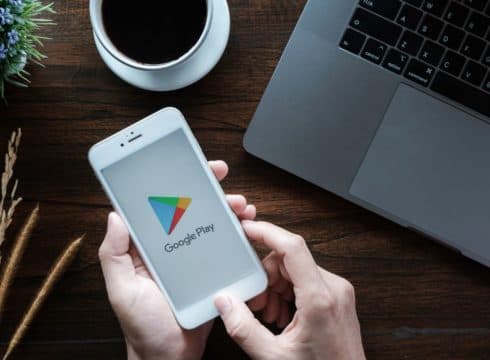In a new report, Citizen Collective and other organisations have pointed out that over 426 unauthorised lending apps are available on the Google Play Store
Amid cases of harassment, these apps are operating without any legitimate ties with Indian banks or NBFCs
Google had removed five loan apps from the Play Store in November, which used similar tactics to intimidate borrowers
Inc42 Daily Brief
Stay Ahead With Daily News & Analysis on India’s Tech & Startup Economy
After Google was recently asked to remove some of the unauthorised digital lending applications from its Play Store by police in India, it has now been revealed that the Google Play Store is host to 426 so-called rogue lending apps.
The list released by Citizen Collective, a platform that raises awareness on consumer rights issues, furnished details about these apps which involve abusive lending practices and ask users for several permissions, that put them and their contacts at risk.
The saga of these unauthorised apps came to light after several complaints in various police stations on the harassment and abuse the consumers faced from their collection agents which led to a few suicide cases as well.
Recently, Telangana police had asked Google to remove 158 unauthorised lending apps from Google Play Store.
Besides Citizen Collective, researchers of cybersecurity firm Banbreach and Cashless Consumers, which raises consumer awareness on cashless payments, compiled a database of these apps and revealed that many of them offer loans at an extremely high interest rate and then use intimidation tactics for recovery. The companies alleged these apps are also involved in illegal activities, which could include money laundering and extortion
Fintech researcher and coordinator at Cashless Consumer, Srikanth L told TOI that almost all of these apps require intrusive permissions such as viewing photos on the phone or access to SMSes. Moreover, only 201 apps have a dedicated website, while over 45 of them seem to have fake addresses listed. The researcher suggested that Google needs to mandatorily require website links and real addresses, similar to the email address and the privacy policy that it currently enforces.
The research also revealed that most of these apps originate from China and do not have legitimate tie-ups with Indian banks or NBFCs. This is a direct contravention of RBI’s rules, which the central bank recently renotified.
While there are reports of many unauthorised lending apps, Google did remove five such digital lending applications from the Play Store in November, which were said to be using similar tactics to intimidate customers. OkCash, Go Cash, Flip Cash, ECash, and SnapIt Loan were the apps removed by Google.
With the loan defaults surging this year, consumers are forced to take unsecured credit lending and to make them aware of the dangers of taking these easy loans, the Reserve Bank of India (RBI) released an advisory asking consumers to not fall prey to the unauthorised digital lending platforms and also said that lending operations are only allowed for banks, NBFCs and other entities regulated by state governments under statutory provisions.
{{#name}}{{name}}{{/name}}{{^name}}-{{/name}}
{{#description}}{{description}}...{{/description}}{{^description}}-{{/description}}
Note: We at Inc42 take our ethics very seriously. More information about it can be found here.


